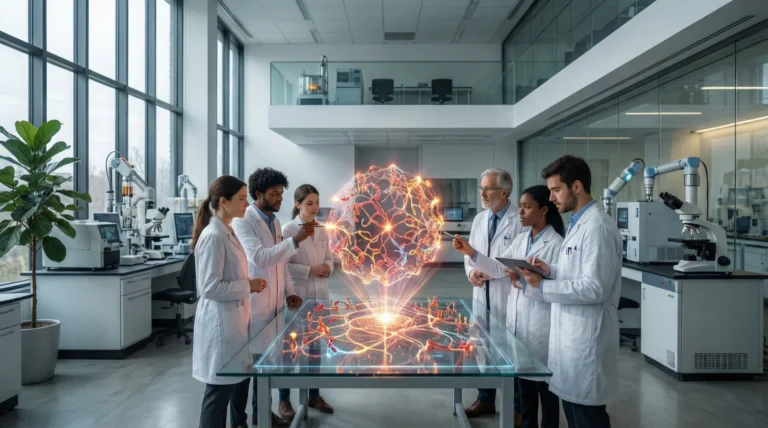
Researchers from City of Hope®, a leading cancer research and treatment organization in the United States, presented new findings at the 2024 ASH conference in San Diego, California, from December 7 to 10. Known for its comprehensive cancer center in Los Angeles, which ranks among the top 5 in the nation according to U.S. News & World Report, City of Hope shared research on innovative treatment options, side effect prevention, and risk prediction for blood cancer patients.
At the 2024 American Society of Hematology (ASH) annual conference in San Diego, scientists and physicians from City of Hope® shared new findings on immunotherapies, side effect prevention, and risk prediction for blood cancer patients. Their research focused on emerging therapies such as CAR T-cell therapy, monoclonal antibodies, and approaches to prevent graft-versus-host disease (GVHD) in stem cell transplant recipients.
Dr. Eileen Smith, City of Hope’s distinguished Chair in Hematology, highlighted the importance of their work in addressing rare blood cancers and patient populations often overlooked in clinical trials. “Our research is not just about new treatments but about improving supportive care and developing better risk prediction models for challenging cancer subtypes,” she said.
City of Hope’s presence at ASH was significant, with experts contributing to over 104 sessions, including oral presentations, poster sessions, and symposia. Key highlights included:
Revumenib in Acute Leukemias
Dr. Ibrahim Aldoss presented updated results from a Phase 2 study of revumenib, a therapy for patients with KMT2Ar acute leukemia, a mutation linked to poor prognosis. Revumenib demonstrated a high complete remission rate, providing a new option for heavily pretreated patients. “Our study contributed to FDA approval for these patients, offering them a promising therapeutic option,” Dr. Aldoss said.
Early CAR T-cell Therapy in Older Adults with B-ALL
Dr. Aldoss also reported on a trial testing CD19 CAR T-cell therapy in older adults with B-cell acute lymphoblastic leukemia (B-ALL). The results were promising, with patients showing tolerable outcomes and durable remissions after a single infusion of CAR T cells. “This could change the treatment paradigm for older adults with B-ALL,” Dr. Aldoss noted.
CAR T-cell Therapy in Non-Hodgkin Lymphoma
A study led by Dr. Swetha Kambhampati Thiruvengadam explored the use of CD19 CAR T-cell therapy in patients with transformed indolent non-Hodgkin lymphoma (tiNHL), a high-risk group often excluded from clinical trials. The study found that CAR T-cell therapy had higher complete response rates and a better toxicity profile compared to conventional treatments. Dr. Thiruvengadam believes this finding supports using CAR T-cell therapy earlier in treatment for these patients.
Treatment for Rare Lymphomas
Dr. Jasmine Zain led a phase 1/2 clinical trial testing an anti-CD94 monoclonal antibody for cytotoxic T-cell lymphomas (CTL), a rare and fatal group of cancers. The promising results showed a 33% overall response rate in relapsed and refractory patients. “This therapy could transform the treatment landscape for these rare lymphomas,” Dr. Zain said.
Improved Outcomes for Cutaneous T-cell Lymphomas
Dr. Christiane Querfeld presented results from a phase 1/2 trial combining durvalumab and lenalidomide to treat advanced cutaneous T-cell lymphoma (CTCL). The combination showed superior efficacy compared to durvalumab alone, with a 75% response rate. “This combination could offer better outcomes for patients with CTCL, particularly those of African descent, who face worse outcomes,” Dr. Querfeld said.
New Transplant Risk Assessment for Older Adults
Dr. Andrew Artz introduced a new risk assessment model, CHARM, to predict outcomes of bone marrow transplants in older adults. The model helps identify patients likely to have fewer complications, enabling more personalized treatment plans. “CHARM can guide clinicians in offering transplants to patients who are likely to benefit,” Dr. Artz explained.
Reducing Relapse in Transplant Patients
Dr. Monzr M. Al Malki presented results from a trial using engineered T cells to reduce disease relapse in transplant patients. The treatment showed promising results, with only 8% of participants relapsing compared to 35% in the control group. “This could significantly improve survival rates in high-risk populations,” Dr. Al Malki said.
Targeting Disease-Initiating Cells in Acute Myeloid Leukemia
Dr. HyunJun Kang and his team introduced AOH1996, a novel PCNA inhibitor targeting leukemia stem cells in acute myeloid leukemia (AML). In preclinical trials, the drug demonstrated efficacy in reducing tumor growth with minimal toxicity, offering a promising new treatment approach for AML.
Preventing GVHD in Stem Cell Transplant Patients
Dr. Haris Ali reported on a phase 2a clinical trial testing a combination therapy to prevent graft-versus-host disease (GVHD) in stem cell transplant recipients. The results showed improved GVHD-free, relapse-free survival rates, making this approach a potential breakthrough in transplant care.
City of Hope continues to lead in developing innovative therapies for blood cancers, with a focus on improving patient outcomes through personalized treatment strategies.




